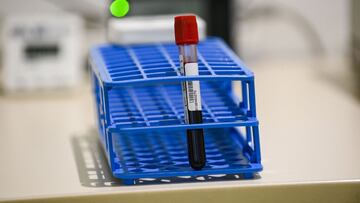Blood type might affect covid-19 infection: how and what types?
New research has emerged indicating that your blood type could affect whether the coronavirus “latches on” to your cells and ends up causing infection.

There is some evidence to suggest that the virus that causes covid-19 may struggle to take hold in people with certain blood types more than others. It’s all because of the way the virus functions once it enters your body. And other blood types may have a much easier time trying to fight off the virus.
What blood types are most affected by covid-19 and why?
The novel coronavirus, or SARS-CoV-2 to be precise, is a virus that causes infection by first latching onto the cells in your airways; and a new study has suggested that in people with blood type A the virus has an easier time latching on to just those cells, situated throughout the respiratory system.
The study, published Wednesday and conducted in a laboratory setting by scientists at Brigham and Women’s Hospital in Boston, showed that SARS-CoV-2 had a “strong preference” for binding to the blood type A antigen (or molecule) found on respiratory cells, but had no preference when it came to other cells with the same blood group. The study was conducted on the respiratory cells that lined the respiratory tract as well as the lungs.
The research also included analysis of blood types B and O, for which it was found the virus did not show any preference, or in other words it did not bind as easily to the respiratory cells of types B and O, as to those of the blood type A.
Researchers say this does not mean that those with blood types B and O are immune to the virus, but said it does suggest that blood type A individuals are more likely to get infected.
What blood type are you? SARS-CoV-2, the virus that causes COVID-19, may latch more easily onto the airway cells of those with type A blood than any other blood group, according to a new study.https://t.co/kSxZJ41j8K pic.twitter.com/PQ7S0iq5Oy
— CTV News (@CTVNews) March 4, 2021
“We may be able to find new medicines”
"Blood type is a challenge because it is inherited and not something we can change," Stowell said in a journal news release. "But if we can better understand how the virus interacts with blood groups in people, we may be able to find new medicines or methods of prevention."
Related stories
The researchers highlighted that these findings alone can't fully explain or predict how coronaviruses would affect patients of various blood types. "Our observation is not the only mechanism responsible for what we are seeing clinically, but it could explain some of the influence of blood type on covid-19 infection," Stowell and his team said.
The novel coronavirus has so far claimed more than 2.5 million lives in the world with over 115 million infections. The US still leads the world with over 518,000 deaths and 28.7 million cases, Johns Hopkins University data showed.


